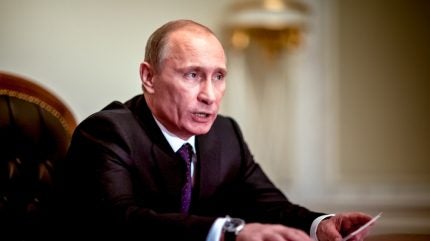
Moscow should consider limiting exports of uranium, titanium and nickel in retaliation for Western sanctions, according to Russian President Vladimir Putin.
Western countries have imposed strict sanctions on Russian oil and gas following Russia’s invasion of Ukraine, but the country remains a major global exporter of metals.
“Take a look at some of the types of goods that we supply to the world market. Maybe we should think about certain restrictions – uranium, titanium, nickel,” said Putin in televised comments.
The president also noted the possibility of introducing restrictions on Russian gold and diamonds, stating that Russia has almost 23% and 55% of the world’s gold and diamond reserves, respectively. However, he cautioned “we just mustn’t do anything to harm ourselves”.
Reuters reported that Putin’s remarks to government ministers prompted a rise in nickel prices and increased shares in uranium mining companies. Three-month nickel on the London Metal Exchange (LME) surged 2.6% to $16,145 per tonne shortly after Putin’s comments.
Russia is home to the world’s biggest refined nickel producer, Nornickel. In the first half of 2024, the company secured plans to develop a platinum group metals refinery in Bahrain and a nickel plant in China, broadening its reach.
Nickel is an essential component in the production of batteries, steel and turbine blades. According to Reuters, more than a fifth of the nickel in LME-registered warehouses is of Russian origin.
Russia is also the world’s fourth-largest uranium producer and has approximately 44% of global uranium enrichment capacity. Uranium is the principal fuel for nuclear power reactors.
In August, the US Prohibiting Russian Uranium Imports Act went into effect, banning a trade worth around $1bn (Rbs91.19bn) annually. However, the law contained waivers in case of supply concerns that would allow the Department of Energy to maintain normal levels of Russian uranium imports through 2027. Centrus has already been granted a waiver to import low-enriched uranium from Russia in 2024 and 2025.
Russian-origin uranium accounted for 12% of total deliveries to US utilities in 2023 and 27% of foreign-owned enrichment services. In Europe, Russia accounted for 23.5% of the uranium delivered to EU utilities in 2023, as well as 26.5% of conversion services and 37.9% of enrichment services.
Russia’s has low titanium mineral reserves but is the world’s third-largest producer of titanium sponge.



